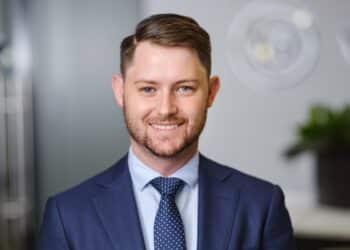More than 1200 financial advisers have had their dealer group sold or cancelled in the past year.
In some cases, it has stripped them of the ability to provide advice and left the viability of their businesses in limbo through no fault of their own.
The financial services industry is in transition but too many advisers are unfairly carrying the burden of poor institutional decisions.
They are being forced to find alternative licensing arrangements at a time when they’re already grappling with enormous regulatory reform, tougher education requirements and the possibility of further changes to life insurance commissions.
Advisers left in limbo
The roll call of advisers left in limbo by their dealer group is getting longer by the day.
In June, more than 400 Dover financial planners received an email from their licensee – sparked by ASIC enquiries – that revoked their ability to provide new advice to clients.
Late last year, advisers working under the umbrella of two of Australia’s largest banks were told their bank-owned product providers would end grandfathered commissions from January 1, 2019.
And most recently, Westpac announced it would completely exit personal advice. Consequently, 800 financial advisers must now make some momentous choices in a matter of months.
Less than 100 of those advisers will be offered employment with the acquiring company while the rest will need to either become self-licensed or move to another dealer group.
Is it any surprise that many advisers are looking for a new path forward?
The rise of independent licensing
The winds of change are blowing in one direction. The Royal Commission has tarnished the reputation of large institutions, which will take years to recover in the eyes of clients. The push is one for greater self-regulation with the Royal Commission recommending individual adviser registration alongside the AFSL system.
In this environment, major institutions are making reactive decisions, undermining adviser confidence in the dealer group model.
Rather than remain at the mercy of large bureaucracies and their decisions, a growing number of advisers are exploring self-licensing. Westpac’s imminent exit from personal advice will further accelerate the trend to independence illustrated in the graph below.
Running their own AFSL puts advisers back in the driver’s seat but with that control comes greater responsibility to manage their supporting infrastructure and functions.
It’s easy to take research, compliance support, technology, and technical services for granted when they’re provided by a large institution. Attempting to build them from scratch takes time away from client-facing, revenue-generating activities and needs specialist skills.
The middle ground is to remove the bureaucracy itself, wrapping up the best components of an institution into a dealer group services offering.
This is what we have done with LaVista Licensee Solutions, which effectively allows advisers to pick and choose what they need.
Clients expect the same level of quality service whether a practice has institutional backing or not. Professionalism must come through in everything a practice does – advisers can’t afford to provide advice documents to clients that contain mistakes or inconsistencies.
The time is right for advisers who want to run their own AFSL, with the right type of support to sustain a high-quality advice business for many years to come.
Could the dealer group services model be the right solution to help you focus more on serving your clients, and less on keeping your business running? To find out more, visit LaVista Licensee Solutions.
Mike Pope is Chief Executive Officer of LaVista Licensee Solutions. He can be contacted at mike.pope@lavista.com.au.




Clearview specialises in cold calling indigenous people to hot sell crap products.
They got smashed for it at the Royal Commission.
What is their not to like about their offer?
Its laughable to see institutional licensees – in this case Clearview – try to sidestep their compliance issues and present themselves as the solution to the problems they created.
it is probably one of the only professions where you are only qualified if a private company (Licensee) says so. Compared to say a doctor, you are certified by a medical board, and remain so whether you are employed, unemployed or moving to a new job. So this idea is probably the best of both worlds, as you can get self licensed and remain so rather indefinitely at your own choosing, but get the compliance burden off your shoulders – which is largely the biggest reason why the Instos are getting out of the game, the elephant in the room perhaps. The bad ink is a part, but the cost, and risk of doing business just got too high because the ASIC hoops.
Advisers need to form a movement. A class action like event that says enough. Not putting up with this political football and draw a line in the sand.
Delete the FPA and AFA out of existence and form your own body. One that isn’t solely focused on selling courses and memberships over the rights of your life and career.
Get rid of these parasites that have destroyed the industry, destroyed your business and enable yourself to get back to providing advice at a reasonable cost. No one wants this $4000 SOA nonsense.
UFAA seem to have some balls and traction at last.